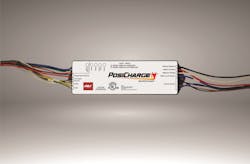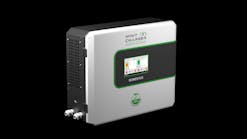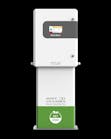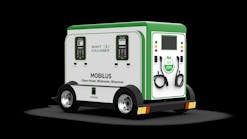For some ground support equipment fleets, battery-powered vehicles are becoming an increasingly attractive option for providing required services while keeping operation costs down – all while reducing a company’s environmental impact.
But in order for a company to reduce its expenses and increase its return on investment, proper battery management is key, says Jonah Teeter-Balin, director of product marketing at AeroVironment.
AeroVironment’s line of PosiCharge products, including its Battery Rx device, helps fleet managers track critical battery data.
“Some of the factors include weekly equalization, watering, overheating prevention and use of a proper charging algorithm,” Teeter-Balin explains, noting that correctly maintaining these aspects can dramatically increase the life of a battery.
When installed, the Battery Rx identifies the battery, then tracks and stores battery health and charge data. Coupled with the company’s PosiNET software, that information is relayed back to fleet managers to be analyzed so the company can make informed decisions regarding battery maintenance.
“The system communicates with the battery and provides useful information to make operations smarter,” says Teeter-Balin.
Actionable data is crucial to any person responsible for getting maximum production out of its fleets – whether the fleet is powered by electricity or a traditional fuel like gasoline or diesel.
In the case of battery-powered GSE fleets, capturing and analyzing operational energy usage and charging data can help fleets get the most life out of batteries and reach peak operational efficiency.
“Our system will help you monitor and maintain battery health so you can defend warranty claims and, ultimately, buy less batteries,” Teeter-Balin adds.
Proper battery management can save ground support equipment fleets millions of dollars annually. The key to lowering annual costs is minimizing downtime and reducing battery replacements through preventative maintenance scheduling and addressing real-time alerts about battery-related issues.






